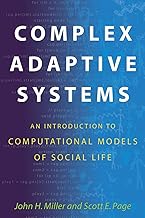Summary of "Systems Thinking & Sustainability: Live Discussion"
Summary of “Systems Thinking & Sustainability: Live Discussion”
This live panel discussion explores the intersection of systems thinking and sustainability, focusing on how systems thinking can inform governance, organizational approaches, and societal behavior in the Anthropocene era. The conversation emphasizes the complexity and interconnectedness of social, ecological, and economic systems and highlights the need for a paradigm shift in how we understand and act toward sustainability.
Main Ideas and Concepts
Context of the Anthropocene
Human activity has fundamentally altered Earth’s systems, creating complex sustainability challenges—such as water crises, energy transitions, climate change, and pollution—that are deeply intertwined with the social and economic systems we create.
Paradigm Shift: Systems Thinking as a Foundation
Sustainability challenges require a shift in thinking—from linear, reductionist views to holistic, systemic perspectives that see relationships and dynamics within the whole system.
Defining Sustainability
- Sustainability is a measure of system performance, not a fixed endpoint.
- The focus should be on the quality of the relationship between humans and the biosphere, emphasizing co-evolution and ongoing adaptation.
- Sustainability is context-dependent and varies across communities and ecosystems; universal definitions or goals (e.g., SDGs) are helpful but insufficient alone.
- It is dynamic, emergent, and requires continuous reassessment rather than fixed targets.
Systems Thinking Principles Relevant to Sustainability
- Interconnectedness and Relatedness: Everything is linked in complex networks, with effects that can be nonlinear and emergent.
- Open Systems: Systems are embedded in and influenced by other systems; boundaries are porous.
- Nonlinearity and Exponential Change: Small changes can have large, unpredictable impacts.
- Emergence: New properties and behaviors arise from interactions within the system that cannot be predicted from individual parts alone.
- Context and Initial Conditions: The environment and initial states heavily influence system behavior and outcomes.
- Governance as Navigation: Governance is a learning journey akin to navigation, requiring coherent values and adaptive responses rather than fixed solutions.
- Power of Context: Behavior is shaped by the conditions and contexts designed around it; changing context can facilitate systemic change.
- Gamification Metaphor: Governance and systemic change can be seen as designing “games” with rules and contexts that encourage sustainable collective behavior and emergence.
Systemic vs. Systematic Thinking
- Systematic: Linear, reductionist, cause-effect thinking dominant in current culture and governance.
- Systemic: Holistic, relational, and dynamic thinking needed to address complex sustainability challenges.
- Both modes are necessary but systemic thinking is underutilized and critical for future governance.
Examples of Systems Thinking in Practice
- River Governance in South Africa: Long-term systemic inquiry involving multiple stakeholders to manage ecological, social, and economic aspects of river basins, highlighting challenges in institutional sustainability and governance reform.
- Sea Boss Project: Targeting keystone actors (major fishing companies) in global fisheries to leverage systemic influence for sustainable resource management.
- Transformative Spaces: Creating inclusive, facilitated spaces where diverse stakeholders (including marginalized voices) engage relationally to catalyze systemic change.
- Education System Reform in Morocco: Shifting foundational perceptions of education from performance/competition to human potential and collective learning, illustrating second-order systemic change.
Philosophical and Linguistic Challenges
- Language and dominant Western paradigms limit systemic thinking because they emphasize nouns (static objects) over verbs (relationships and dynamics).
- Indigenous cosmologies and alternative worldviews offer valuable insights into relational thinking and sustainability.
- Philosophy and systemic thinking are deeply connected; changes in assumptions and worldview lead to different actions.
Governance for Sustainability
- Requires patience, reflection, and a learning mindset before jumping to solutions.
- Must consider initial conditions, power of context, emergence, and coherence across scales and domains.
- Digital transformation and gamification approaches can help model and design governance systems that are coherent and adaptive.
Critique of Neoliberal Paradigm
- Neoliberalism has been dominant but is increasingly challenged by the need for collective well-being and sustainability.
- Economic models based on narrow views of human behavior (Homo economicus) fail to capture relational and systemic realities.
Methodology / Instructions Presented
- Recognize and embrace complexity and interconnectedness rather than oversimplifying problems.
- Use systemic principles to understand relationships and dynamics rather than isolated components.
- Design governance and interventions that create enabling contexts rather than impose top-down controls.
- Facilitate inclusive, relational spaces for dialogue and co-creation across diverse stakeholders.
- Employ iterative learning and adaptation, viewing governance as a navigational journey rather than a fixed destination.
- Leverage keystone actors or leverage points within systems to maximize influence and ripple effects.
- Integrate philosophical reflection on assumptions and language to broaden perspectives and approaches.
- Use metaphors like gamification to conceptualize and design systemic interventions that encourage sustainable collective behavior.
- Balance systematic (linear, data-driven) and systemic (holistic, relational) thinking appropriately depending on context.
Speakers / Sources Featured
-
Rico Crozier
- Senior Researcher, Centre of Complex Systems and Transitions, Stellenbosch University, South Africa
- Expertise: Complex adaptive systems, resilience, earth stewardship, interdisciplinary approaches.
-
Ray Ison
- Professor of Systems, The Open University, UK
- Member of Applied Systems Thinking in Practice group
- Developed systemic governance research program at Monash University
- Author of System Practice: How to Act in a Climate Change World
-
Louise Klein
- Dean, European School of Governance
- President and Founder, Systemic Change Institute and Systemic Excellence Group
- Director, International Centre for Complex Project Management
- VP, International Society for the System Sciences and International Federation for Systems Research
-
Moderator
- Not named explicitly, but facilitated the discussion and Q&A session.
This summary captures the core themes, insights, and practical examples shared in the discussion, illustrating how systems thinking can enrich and transform sustainability efforts in theory and practice.
Category
Educational
Share this summary
Featured Products




